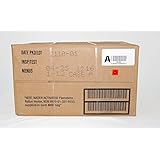Evaluate Your Financial Situation
Assess Current Assets
First things first, I took a hard look at my finances. I wanted to know where my money was and what I had at my disposal. I listed out all my assets—my home, savings accounts, stocks, and even any side hustles generating income. This gives me the complete picture of my financial health.
Next, I went deeper. I considered my liabilities, such as debts and loans. This helps me figure out what I can lean on in rough times and what might be weighing me down. It’s all about balance. After all, knowing your total net worth isn’t just good practice; it’s crucial when planning for any kind of economic crisis.
Finally, I looked at my cash flow situation. Monitoring my income versus expenses helps me see if I’m living within my means and if I have a cushion for unexpected downturns. Creating a budget, believe it or not, is a game-changer when you’re trying to prep for uncertain times.
Diversify Your Investments
Spread Your Portfolio
When I started looking into how to safeguard my assets, diversification quickly became my mantra. I learned the hard way that having all my eggs in one basket can spell disaster during economic downturns. So, I invested in a mix of stocks, bonds, real estate, and even precious metals.
Real estate is a big one for me. It can be a tangible asset that not only holds value but can be an income source through rentals, too. And let’s not forget about gold and silver; they tend to do well when the economy isn’t! So, I focused on building a portfolio that is resilient against market volatility.
Plus, I also looked into alternative investments—think cryptocurrency or peer-to-peer lending. This is not the traditional route, but it can provide a buffer during tough economic times. It’s all about being smart, researching options, and making informed decisions.
Stock Up on Essentials
Food and Water Supply
You know that feeling when you’re stuck home during a storm, and you realize you’ve run out of snacks? Yeah, that’s not gonna happen again! I made it a habit to keep a good supply of non-perishable food items. Canned goods, dried beans, and rice—the basics don’t just work now, but they’ll come in handy if times get tough.
Water is a biggie too. I invested in a good water filtration system and made sure I have containers to store clean drinking water. You can’t forget about this; it’s not just about the food but also having enough hydration. It’s all about thinking ahead!
== > What if ... Get a FREE Subscription to PREPARE
Lastly, I also thought about personal hygiene and medical supplies. Stocking up on toilet paper, soap, and basic medical supplies can save you from unnecessary worries. It’s important to have not just the essentials but also what keeps you and your loved ones feeling comfortable during tough times.
Build a Strong Community Network
Connect with Neighbors
Let’s face it; when things hit the fan, it’s going to be all about who you know! I started building relationships with my neighbors. Having a community you can rely on is invaluable during crises. We’ve exchanged contact info, and meet-ups over coffee to discuss preparedness strategies have become routine.
Creating a local preparedness group is another great idea. Sharing resources and skills can really strengthen what everyone brings to the table. If someone has gardening experience, while another knows about hunting, those skills can combine to enhance our collective resilience. Teamwork makes the dream work!
It’s also about helping each other out. Like, if one family has a surplus of food during a good harvest, they can share with those in need. Making sure everyone in my circle is on board creates a stronger bond and a more prepared network.
Stay Informed About Economic Trends
Research and Education
I’m a firm believer in staying updated on what’s going on around us. Reading the news, subscribing to financial blogs, and listening to podcasts helps me stay in the loop about economic trends. Education is power, and it’s especially true when it comes to preparing for potential economic downturns.
I also connect with experts and financial advisors when possible. Sometimes, it’s helpful to hear from those in the know, be it through webinars or Q&A sessions. Getting different perspectives can help shape my own understanding and responses.
Lastly, I made it a habit to discuss these trends with friends and family. Having conversations about our economy, inflation, or local market changes keeps everyone aware and ready to react together. You’d be surprised how collective knowledge can spark actionable strategies!
FAQ
- 1. What should be my first step in preparing for an economic collapse?
Start by thoroughly evaluating your financial situation, including your assets and liabilities. This forms the foundation for your preparedness strategy. - 2. How can I diversify my investments effectively?
Spread your investments across various asset classes like stocks, real estate, and precious metals. This reduces risk and increases resilience against market fluctuations. - 3. What essentials should I stock up on?
Focus on non-perishable food, clean drinking water, and personal hygiene supplies to ensure you’re self-sufficient during tough times. - 4. How can I start building a community network?
Get to know your neighbors and create a preparedness group. Share skills and resources to enhance overall community resilience. - 5. Why is staying informed about economic trends important?
Staying informed allows you to anticipate changes and adjust your strategy accordingly, helping you effectively navigate uncertain times.






